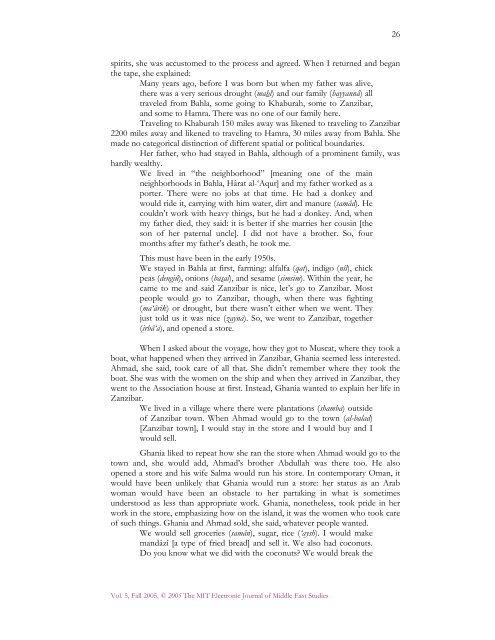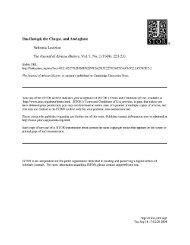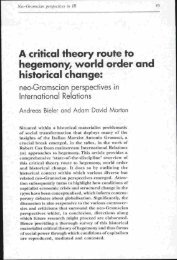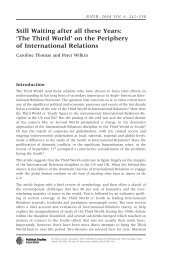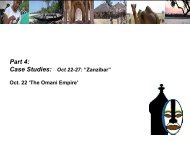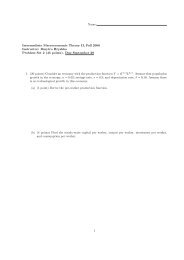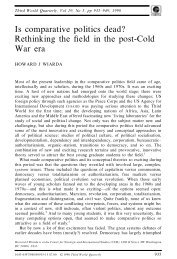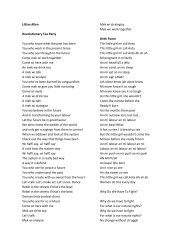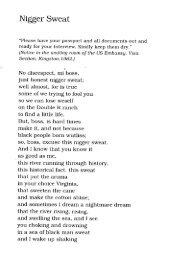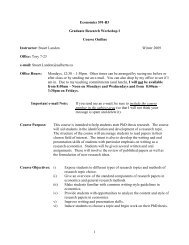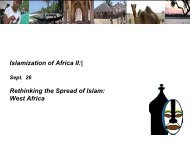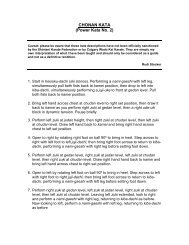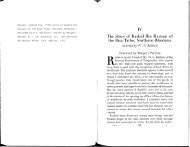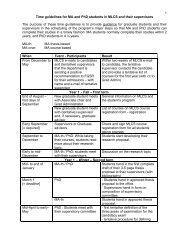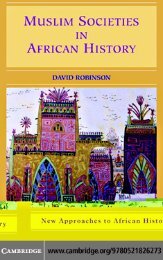personal memories revolutionary states and indian ocean migrations
personal memories revolutionary states and indian ocean migrations
personal memories revolutionary states and indian ocean migrations
You also want an ePaper? Increase the reach of your titles
YUMPU automatically turns print PDFs into web optimized ePapers that Google loves.
spirits, she was accustomed to the process <strong>and</strong> agreed. When I returned <strong>and</strong> began<br />
the tape, she explained:<br />
Many years ago, before I was born but when my father was alive,<br />
there was a very serious drought (mahl) <strong>and</strong> our family (hayyannâ) all<br />
traveled from Bahla, some going to Khaburah, some to Zanzibar,<br />
<strong>and</strong> some to Hamra. There was no one of our family here.<br />
Traveling to Khaburah 150 miles away was likened to traveling to Zanzibar<br />
2200 miles away <strong>and</strong> likened to traveling to Hamra, 30 miles away from Bahla. She<br />
made no categorical distinction of different spatial or political boundaries.<br />
Her father, who had stayed in Bahla, although of a prominent family, was<br />
hardly wealthy.<br />
We lived in “the neighborhood” [meaning one of the main<br />
neighborhoods in Bahla, Hârat al-‘Aqur] <strong>and</strong> my father worked as a<br />
porter. There were no jobs at that time. He had a donkey <strong>and</strong><br />
would ride it, carrying with him water, dirt <strong>and</strong> manure (samâd). He<br />
couldn’t work with heavy things, but he had a donkey. And, when<br />
my father died, they said: it is better if she marries her cousin [the<br />
son of her paternal uncle]. I did not have a brother. So, four<br />
months after my father’s death, he took me.<br />
This must have been in the early 1950s.<br />
We stayed in Bahla at first, farming: alfalfa (qat), indigo (nîl), chick<br />
peas (dengiû), onions (basal), <strong>and</strong> sesame (simsim). Within the year, he<br />
came to me <strong>and</strong> said Zanzibar is nice, let’s go to Zanzibar. Most<br />
people would go to Zanzibar, though, when there was fighting<br />
(ma‘ârik) or drought, but there wasn’t either when we went. They<br />
just told us it was nice (zayna). So, we went to Zanzibar, together<br />
(irbâ‘a), <strong>and</strong> opened a store.<br />
When I asked about the voyage, how they got to Muscat, where they took a<br />
boat, what happened when they arrived in Zanzibar, Ghania seemed less interested.<br />
Ahmad, she said, took care of all that. She didn’t remember where they took the<br />
boat. She was with the women on the ship <strong>and</strong> when they arrived in Zanzibar, they<br />
went to the Association house at first. Instead, Ghania wanted to explain her life in<br />
Zanzibar.<br />
We lived in a village where there were plantations (shamba) outside<br />
of Zanzibar town. When Ahmad would go to the town (al-balad)<br />
[Zanzibar town], I would stay in the store <strong>and</strong> I would buy <strong>and</strong> I<br />
would sell.<br />
Ghania liked to repeat how she ran the store when Ahmad would go to the<br />
town <strong>and</strong>, she would add, Ahmad’s brother Abdullah was there too. He also<br />
opened a store <strong>and</strong> his wife Salma would run his store. In contemporary Oman, it<br />
would have been unlikely that Ghania would run a store: her status as an Arab<br />
woman would have been an obstacle to her partaking in what is sometimes<br />
understood as less than appropriate work. Ghania, nonetheless, took pride in her<br />
work in the store, emphasizing how on the isl<strong>and</strong>, it was the women who took care<br />
of such things. Ghania <strong>and</strong> Ahmad sold, she said, whatever people wanted.<br />
We would sell groceries (samân), sugar, rice (‘aysh). I would make<br />
m<strong>and</strong>âzî [a type of fried bread] <strong>and</strong> sell it. We also had coconuts.<br />
Do you know what we did with the coconuts? We would break the<br />
Vol. 5, Fall 2005, © 2005 The MIT Electronic Journal of Middle East Studies<br />
26


